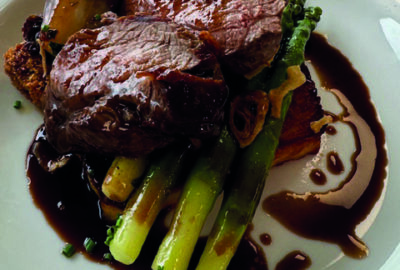Prue’s blueprint for school meals
Prue Leith has revealed her aspirational blueprint for school meals.
The Great British Bake Off judge and former chair of the School Food Trust believes the national obesity problem can be fixed in a single generation – and is calling on the government to “take food education seriously”.
If a food revolution is to take place the whole school has to do its part
Speaking at the LACA Main Event, she said: “A lot of very good work goes on in schools, led by caterers, or chefs, or sustainability charities, occasionally by teachers and wonderfully, but rarely, by local authorities or school governors. But in the majority of schools, food is just not a priority.”
She continued: “If a food revolution is to take place the whole school must do its part, so midday supervisors, academic teachers, caterers and parents all need to be brought on side.” Prue believes a radical shake-up of school meals will make a difference not only to the school, but also to the economy, NHS and the nation as a whole – and here’s how she would do it:
- Make lunchtime a lesson – part of the school curriculum with the school charged with responsibility for teaching children to eat, persuading them to like good food and enjoy a healthy diet
- Ban lunchboxes – this would have an immediate effect on the finances of the catering department
- Ban the bringing in of any food at all – this would mean the children would have some appetite by lunchtime and more likely therefore to try what was on offer
- Lunch would be free – the cost borne by the state. Finland does this with an average of 8% of a school’s costs going on lunch and food education
- Everyone – staff and pupils – sit together for lunch
- Mobile phones banned and students taught “grown up behaviour”
- School dining rooms upgraded to be pleasant places where students can relax and chat to their friends
- Kitchens modernised to accommodate cooking from scratch with tilting kettles and combi-ovens, resulting in a 50% saving in staff costs
- Except for special diets, everyone would eat the same lunch
- Children would serve themselves so would not end up with more food than they can eat
- Year 9 children would spend a week working in the kitchen to see how it’s cooked and become ambassadors for school meals
- Children would be taught about all aspects of food – growing, cooking, sustainability, nutrition, global cuisines
Early Year Academy Launch:
London Early Years Foundation (LEYF) has launched the inaugural Early Years Chef Academy and professional qualification – the first of its kind for the sector.
With shocking statistics showing one in five children are already overweight when they start primary school, LEYF is calling for the chef qualification to be urgently introduced across all UK nurseries as there is currently no guidance and training for the chefs responsible for cooking and serving nursery food.
Students at the Academy in Stockwell, South London, will achieve a fully CACHE recognised Level 2 qualification. June O’Sullivan, MBE and CEO of London Early Years Foundation, said: “As the UK is facing the biggest public health crisis of recent times and our children are getting fatter, it’s unacceptable that some nurseries are inadvertently adding to the problem by serving meals dangerously high in fat, salt and sugar – and we therefore need a radical wake up.” For more information visit www.leyf.org.uk


